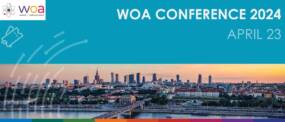The UK Department for International Trade (DIT) has announced the country’s latest round of sanctions against Russia and Belarus following the invasion of Ukraine in February.
The total package consists of import tariffs on goods including palladium and platinum – both components for mobile phone and computer production – and an export ban targeting chemicals, rubber, machinery, and plastics.
Russia is a global leader in the production of platinum and palladium and depends on the UK for the export of these products.
“We are determined to do our utmost to thwart Putin’s aims in Ukraine and undermine his illegal invasion, which has seen barbaric acts perpetrated against the Ukrainian people,” International Trade Secretary Anne-Marie Trevelyan said.
“This far-reaching package of sanctions will inflict further damage on the Russian war machine.
“It is part of a wider coordinated effort by the many countries around the world who are horrified by Russia’s conduct and determined to bring to bear our economic might to persuade Putin to change course.”
Chancellor of the Exchequer Rishi Sunak said: “Putin’s illegal invasion of Ukraine is causing suffering on an enormous scale.
“His barbaric war must be stopped.”
The Chancellor hopes that these new sanctions will do just that by inflicting economic damage on Putin’s war effort.
The UK’s announcement comes alongside similar sanctions from both the USA and Canada and following a G7 call with Ukrainian President Volodymyr Zelensky.
These latest sanctions bring the total value of products subjected to full or partial import and export sanctions on Russia to more than £4 billion.
Excluding gold and energy, this third wave of sanctions brings the proportion of goods imports from Russia hit by restrictions to more than 96%, with more than 60% of good exports to Russia under whole or partial restrictions.
Britain has said it will phase out Russian oil imports by the end of the year.
The government also says it has sanctioned more than 1600 individuals and entities.
The timing of these latest sanctions coincides with the Russian Victory Day celebrations, hosted every year on May 9 to commemorate the Soviet Union’s defeat of Nazi Germany in 1945.
Given the state of global events, this year’s celebration, and Vladimir Putin’s anticipated speech, are expected to be closely analysed by the global community.
Belarus has been targeted by the UK government, which claims its leader Alexander Lukashenko has aided and abetted Russia’s invasion.
 Australia
Australia Hong Kong
Hong Kong Japan
Japan Singapore
Singapore United Arab Emirates
United Arab Emirates United States
United States France
France Germany
Germany Ireland
Ireland Netherlands
Netherlands United Kingdom
United Kingdom






Comments are closed.